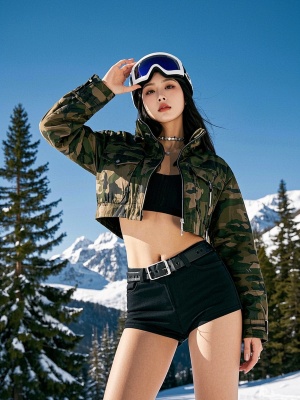Step-by-Step Guide to Pop Art: Creating Vibrant and Iconic Artwork
Introduction to Pop Art
Pop Art emerged in the mid-20th century as a revolutionary art movement that celebrated popular culture, consumerism, and mass media. Artists like Andy Warhol, Roy Lichtenstein, and Richard Hamilton transformed everyday objects and celebrities into vibrant, larger-than-life artworks. This guide will walk you through the process of creating your own Pop Art masterpiece, whether you're working traditionally or using modern AI art tools.
Understanding the Pop Art Aesthetic
Key Characteristics of Pop Art
Before diving into creation, it's essential to understand what defines Pop Art:
- Bold, vibrant colors (often primary colors)
- High contrast and strong outlines
- Repetition and pattern
- Use of commercial imagery and popular culture references
- Irony and humor in subject matter
Choosing Your Subject Matter
Pop Art often features:
- Celebrities and public figures
- Consumer products and packaging
- Comic book imagery
- Everyday objects magnified or repeated
Traditional Pop Art Creation Process
Step 1: Select Your Image
Choose a high-contrast photograph or image with clear outlines. Many Pop Art pieces begin with celebrity portraits or product packaging. For inspiration, browse our gallery of Pop Art examples.
Step 2: Simplify the Image
Using tracing paper or digital tools, reduce your image to its basic shapes and outlines. This step often involves:
- Eliminating subtle shading
- Emphasizing bold contours
- Simplifying complex details
Step 3: Apply Bold Colors
Pop Art is known for its vibrant, often unrealistic color schemes. Consider:
- Using flat areas of color without gradients
- Experimenting with unexpected color combinations
- Creating color separations like in commercial printing
Digital and AI-Assisted Pop Art Creation
Using Photo Editing Software
Modern tools like Photoshop or AI image transformation tools can help you:
- Apply posterization effects
- Create halftone patterns
- Generate color separations automatically
AI-Powered Pop Art Generation
Platforms like MediaAI offer specialized tools for transforming photos into Pop Art styles. The process typically involves:
- Uploading your source image
- Selecting a Pop Art filter or style
- Adjusting parameters like color intensity and line thickness
- Downloading your finished artwork
Advanced Techniques and Finishing Touches
Adding Text and Graphic Elements
Many Pop Art pieces incorporate:
- Onomatopoeic words (BAM! POW!)
- Product labels or logos
- Speech bubbles or comic-style captions
Creating Series and Repetitions
Following Warhol's famous approach, consider creating multiple versions of your artwork with:

- Different color schemes
- Varied compositions
- Sequential imagery
Conclusion: Bringing Pop Art to Life
Creating Pop Art is both an artistic and cultural statement. Whether you choose traditional methods or modern AI painting techniques, the key is to embrace boldness, simplicity, and popular culture references. Remember that Pop Art thrives on experimentation, so don't be afraid to push boundaries with your color choices and subject matter.
For further inspiration, explore the works of Pop Art masters at authoritative sources like Tate Museum's Pop Art guide or MoMA's Pop Art resources.